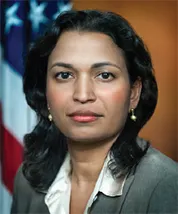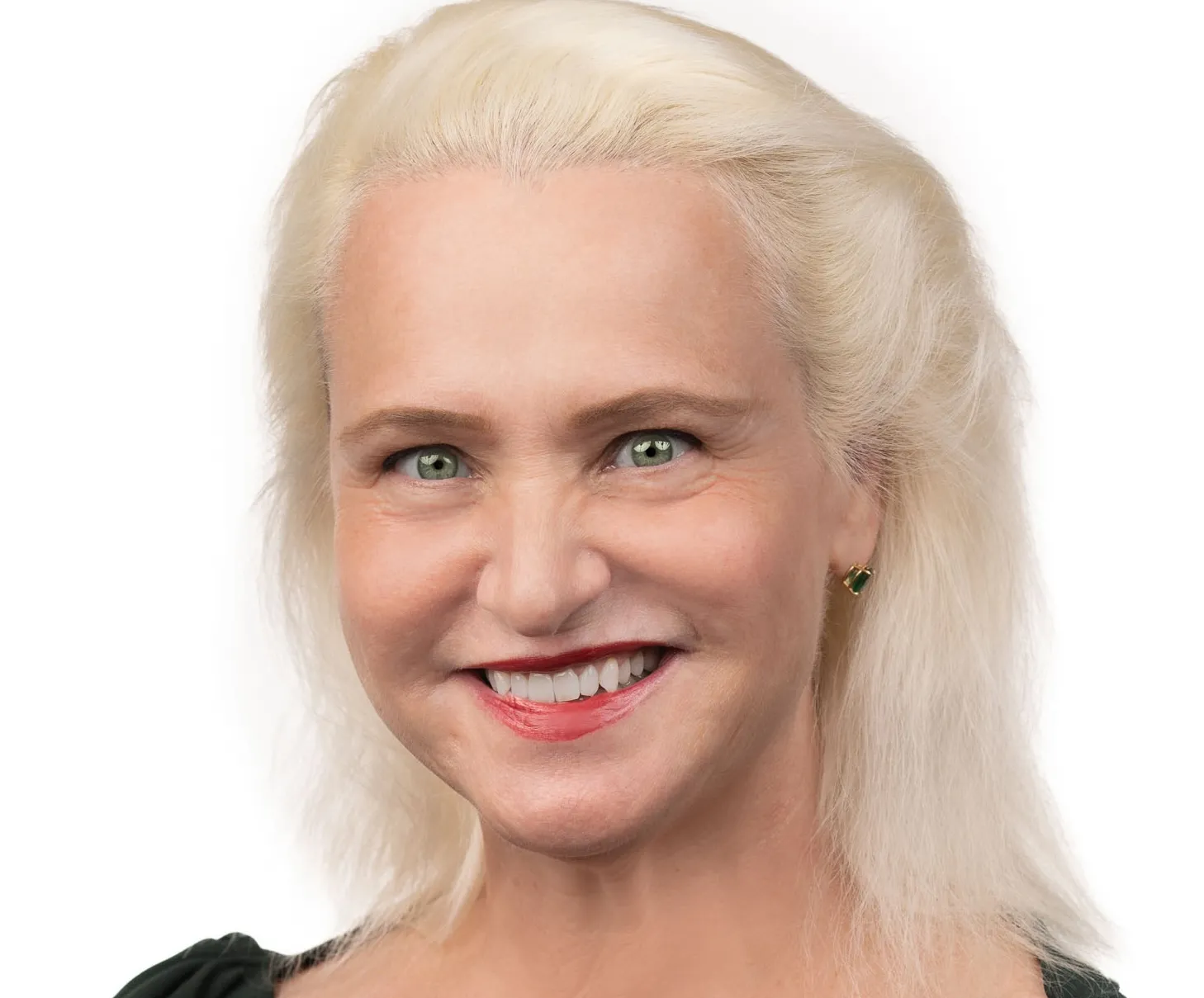Mythili Raman '94: Accomplished Prosecutor Seeking Justice in New Role

Earlier this year, President Obama appointed Mythili Raman, ’94 (née Tharmaratnam), as Acting Assistant Attorney General for the Criminal Division of the Department of Justice (DOJ). Her new role, in which she oversees nearly 600 staff attorneys and works closely with 93 U.S. Attorneys, is the outcome of a steady career progression within the Department of Justice, which she joined in 1996.
“I realized when I was in law school that I wanted to be a prosecutor,” she says. “It was a way to do good, and to embark on a meaningful career in public service. What I didn’t fully realize until I got into it was that it would be so energizing and so much fun.”
She applied for a Department of Justice position during her clerkship with a Court of Appeals judge, but then decided to take a law firm job instead so she could be closer to her fiancé (and now husband), Ven Raman, who was in medical school in Boston. “I remember contacting Professor [David] Strauss for advice, and he told me that there would always be lots of career opportunities, so I should do what was right for my life first. He was right about that.”
But it wasn’t long before she was working at Justice. She lost the first case she tried (a case of assault with intent to kill involving two prison inmates, about which she says, “you can only imagine the cast of characters”). As a line prosecutor, she didn’t lose another trial after that one. “Disappointing as it was, that acquittal was good for me,” she says. “It made me more determined and gave me a lasting respect for the jury system. It also reminded me that our job as prosecutors is not to win every case, but to do justice.”
After a few years prosecuting cases around the country for DOJ’s Narcotic and Dangerous Drug Section, she joined the U.S. Attorney’s Office in Maryland, where she prosecuted and supervised hundreds of criminal cases involving violent crime, financial fraud, narcotics, child exploitation, and civil rights offenses. She particularly recalls a series of successful prosecutions involving the enslavement and sexual abuse of young immigrant girls. “Those cases were hard to prove for a number of reasons, including the girls’ fear of testifying, but we succeeded,” she says. “It felt very good.” At the U.S. Attorney’s Office, she also served as Chief of the branch office and then Appellate Chief.
Returning to the DOJ’s criminal division in 2008, she served as acting chief of staff, and then as Principal Deputy Assistant Attorney General and Chief of Staff, before assuming her current position at the top of the division.
She highlights protecting Americans from financial crime as one of her top priorities for the division. She points proudly to the 110-year sentence handed down to R. Allen Stanford for perpetrating a $7 billion investment hoax, to the successes of the criminal division’s health care fraud strike forces, and to the insider trading convictions earlier this year of two prominent financiers.
Other forms of corruption are also high on her agenda, including enforcement of the Foreign Corrupt Practices Act and the prosecution of corrupt public officials such as former U.S. Representative Richard Renzi, who was found guilty in June of fraud, extortion, and money laundering.
Discussing the challenges of her position, she quickly mentions the effects of budget limitations: “Our funding is lower now than it was two years ago, even as the challenges grow more complex. We’re constantly looking for better ways to do what we need to do with limited resources.” As an example of the increasing complexity of the division’s work, she cites cybercrime, which she says has become “increasingly global and transnational, requiring close cooperation with other countries.” The division’s recent indictments related to an enterprise charged with laundering over $6 billion in criminal proceeds, for example, required coordinated action with law enforcement officials in 17 countries.
“I never stopped loving being in a courtroom and standing up for justice,” Raman says. “Now the satisfactions are more indirect, but I am so proud to represent the hard-working, dedicated—and simply excellent—men and women of the Criminal Division.”


